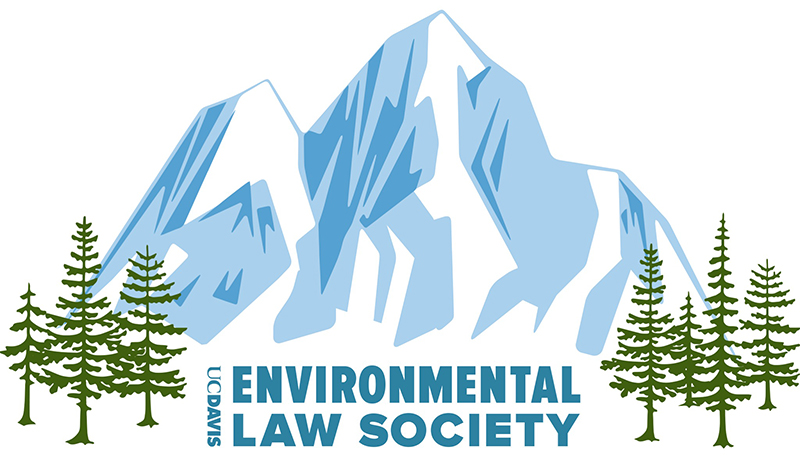8:30 - 9:00A.M. | Breakfast and Check-in
9:00 - 9:45A.M.
Opening Remarks
Professor Benjamin Houlton
Director, John Muir Institute of the Environment, UC Davis
Introduction
Professor Rick Frank
Director, California Environmental Law & Policy Center, UC Davis School of Law
Keynote Presentation
9:45 - 9:55A.M. | Morning Break
9:55 - 11:10A.M. | Panel 1
Implementing California’s Bold New Climate Legislation
In 2016, the California Legislature adopted SB 32, which directs the state to reduce its greenhouse gas emissions to forty percent below 1990 levels by 2030. To meet this mandate, California must rapidly reduce greenhouse gas emissions in all sectors. Panelists will discuss SB 32’s mandate and strategies to implement the law, including the California Air Resources Board’s draft SB 32 scoping plan. Lawyers in attendance will learn how the state can use SB 32 as a tool to improve life in disadvantaged communities, and how the legal community can work with state business leaders to support entrepreneurial efforts to combat climate change.
Jeffery Greenblatt
Staff Scientist, Lawrence Berkeley National Laboratory
Gabriel Monroe
Counsel, California Air Resources Board
Nancy Pfund
Founder and Managing Partner, DBL Partners
Alvaro Sanchez
Environmental Equity Director, Greenlining Institute
MODERATOR: Sophie Wenzlau
UC Davis School of Law (’17)
11:10 - 11:20A.M. | Morning Break
11:20A.M. - 12:35P.M. | Panel 2
Climate Change and Agriculture in California
What will climate change mean for California as a leader in global food production? This panel will address the challenges associated with maintaining sufficient crop production to feed a growing population in the face of a changing climate and increasing drought conditions.
Lawyers in attendance will learn about the nexus between climate law, water law, land use law, and agriculture law, and about what can be done to ensure that California becomes a more sustainable food producer. The audience will learn how California’s water laws and policies, such as the Sustainable Groundwater Management Act, could affect water allocation to agriculture in the context of climate change. Panelists will also teach the audience about pesticide and fertilizer regulation and climate-friendly alternatives to the existing regulatory framework, and will address the impact of agriculture law on rural, often impoverished communities. Panelists will also discuss why nearly all of the 2016 state legislation (e.g., SB 1317 and SB 1350) that was slated to have a positive impact on agriculture and climate change was stalled or voted down.
Renata Brillinger
Executive Director, California Climate and Agriculture Network
Sonja Brodt
Academic Coordinator, UC Davis Agricultural Sustainability Institute
Jennifer Lester Moffitt
Deputy Secretary, California Department of Food and Agriculture
Jay Lund
Director, UC Davis Center for Watershed Sciences
MODERATOR: Dane Jones
UC Davis School of Law (’18)
12:35 - 1:20P.M. | Lunch
1:20 - 2:35P.M. | Panel 3
The Future of Personal Transportation in California: Zero Emission Vehicles and Alternative Mobility
California’s transportation sector is responsible for approximately forty percent of statewide greenhouse gas emissions. The vast majority of these emissions come from cars, motorcycles, and light-duty trucks. In order to meet the state’s ambitious climate change mandate of a forty percent reduction in greenhouse gas emissions below 1990 levels by 2030, Californians must transition to newer and more climate-friendly modes of personal transportation. During this panel, panelists will discuss existing laws and policies that promote zero emission vehicles and alternative mobility (e.g., walking, biking, and public transportation) in California, such as SB 375 and the state’s Advanced Clean Cars program. Panelists will debate the efficacy of existing laws and suggest legal solutions to the state’s transportation emissions problem.
PANEL 3 SPEAKERS:
Irene Gutierrez
Attorney, Natural Resources Defense Council
Jonathan London
Director, UC Davis Center for Regional Change
Gil Tal
Professional Researcher, UC Davis Institute of Transportation Studies
Daniel Witt
Business Development and Policy Manager, Tesla
MODERATOR: Professor Rick Frank
UC Davis School of Law
2:35 - 2:45P.M. | Afternoon Break
2:45 - 4:00P.M. | Panel 4
California’s Foreign Policy on Climate Change
What role does California play in the international response to climate change? California’s commitment to reduce statewide greenhouse gas emissions has, in many ways, paved the way for other governmental entities to follow suit. Panelists will teach the audience about California’s international climate policy, including the Under2 MOU coalition, individual strategic partnerships, and participation in international climate negotiations. Lawyers in the audience will learn about the relationship between sub-national governments, climate policy, federal preemption, and foreign relations.
Danny Cullenward
Research Associate, Carnegie Institution for Science
Alexa Kleysteuber
Deputy Secretary for Border and Intergovernmental Relations, California Environmental Protection Agency
Margaret Minnick
International Liaison Manager, California Air Resources Board
Alana Sanchez
International Relations Senior Advisor, California Energy Commission
MODERATOR: Jamie Katz
UC Davis School of Law (’18)
